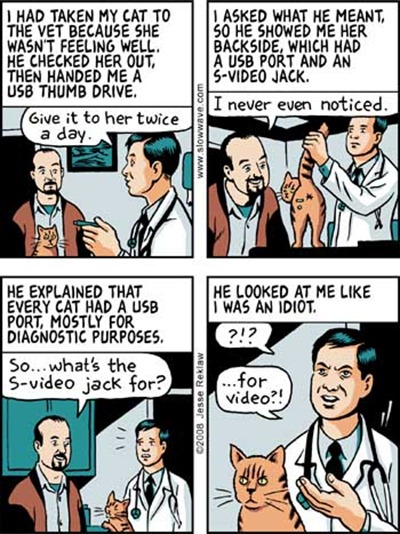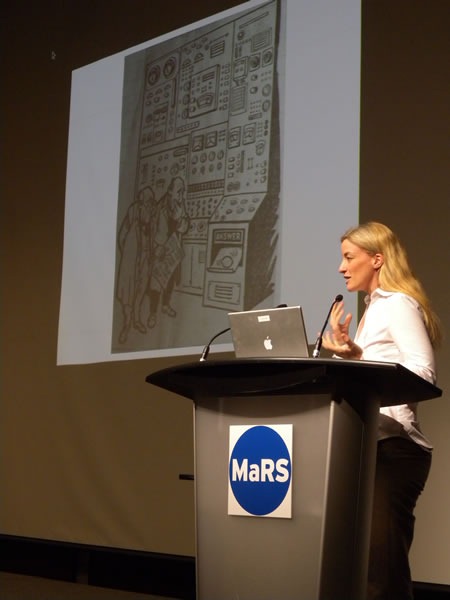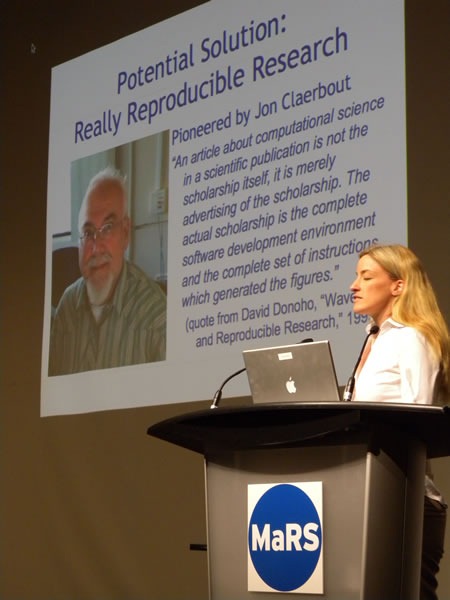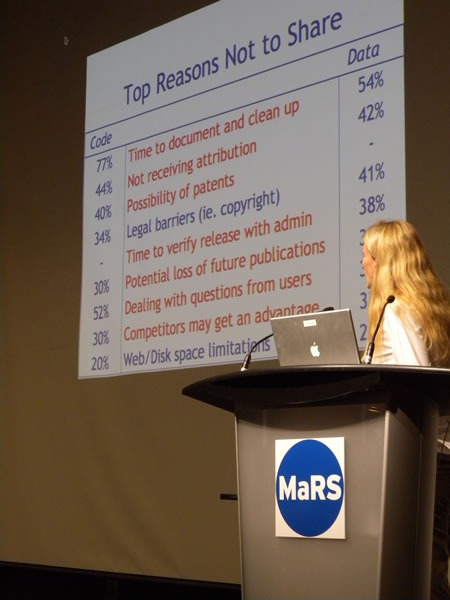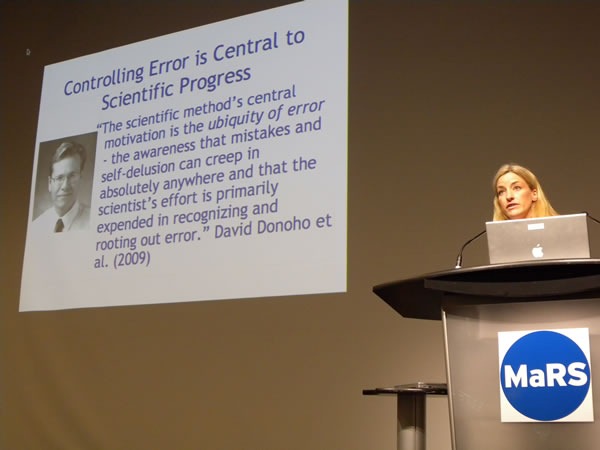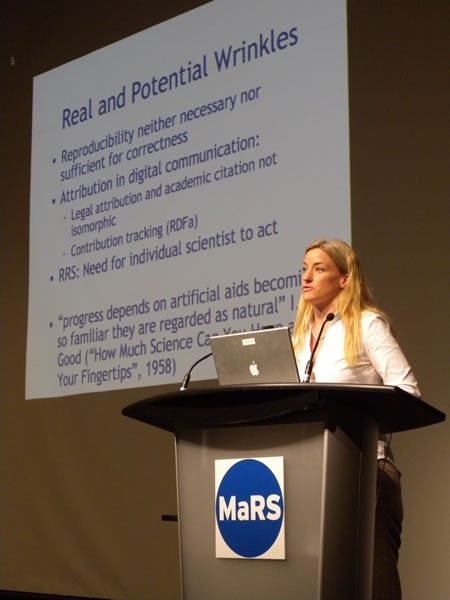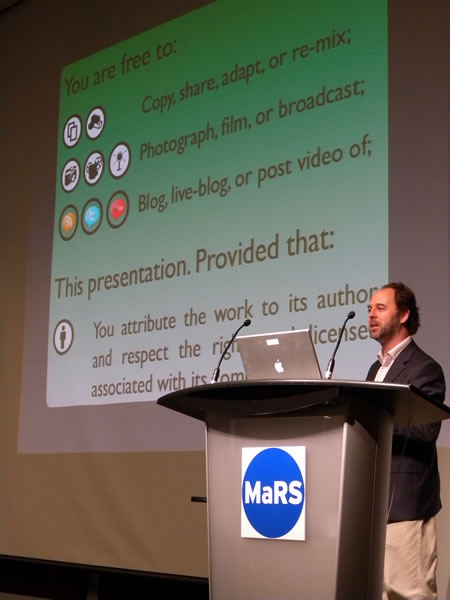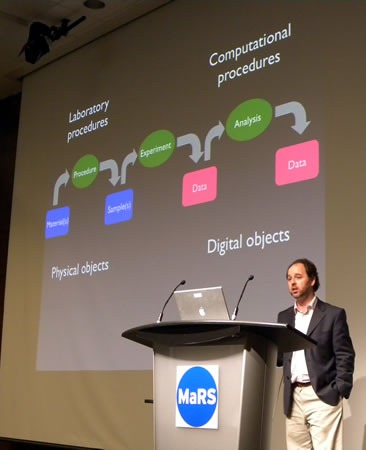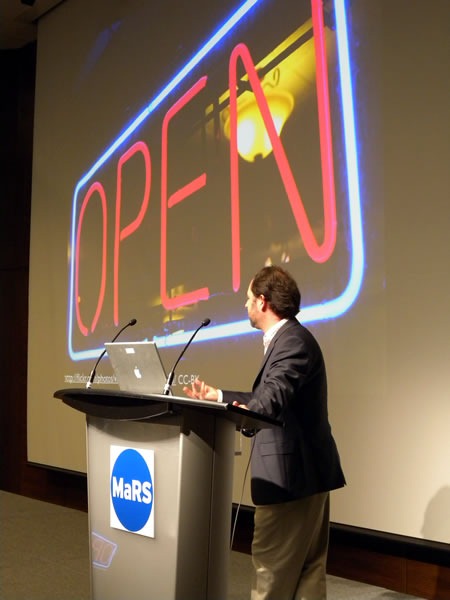Track: Developing for the Microsoft-Based Platform
|
Track: Developer Fundamentals and Best Practices
|
| Learning key skills to develop rich client and web-based applications on the Microsoft-based platform is what this track is all about. In this track you will learn how to develop rich, interactive and interoperable applications for both the client and the web using our newest tools and frameworks. You’ll learn how to build software that helps to give your users the best experience possible, whether it’s a program running on Windows 7, a website built on ASP.NET MVC or a Silverlight-based rich internet application. You’ll also learn how to build services that can deliver data to almost any platform and internet-enabled device. And finally, you’ll learn how to build these software and services in ways that are modular and maintainable. |
This track is all about taking your skills up a notch while at the same time ensuring effective and efficient interaction with all members of the development team from IT architect, to developer, to tester. You will learn about the importance of Application Lifecycle Management (ALM) and how to leverage the Visual Studio development platform to streamline your efforts. You will learn some best practices from industry professionals while building upon your technical foundation. |
Day One: Front End – User Interface and Experience
|
Day One: Core Fundamentals and Best Practices
|
|
Day 1, Session 1:
What’s New in Silverlight 3
Rich internet applications just got richer! Silverlight 3 is packed with new features and improvements that your users will notice, from pixel shaders to perspective 3D to animation enhancements to bitmap APIs to HD video. We think you’ll also be impressed by the features for developers, such as the updated style model, data binding improvements, better resource handling, and a tuned-up Web services stack. In this session, we’ll explore new features of Silverlight 3 as we build a Silverlight-based application using Expression Blend 3 and Visual Studio.
|
Day 1, Session 1:
Tips and Tricks for Visual Studio
This session enhances your experience with Visual Studio. Keyboard shortcuts, macros, layouts, fonts, tools, and external utilities are all very powerful and underused features of Visual Studio. This session makes you more productive in Visual Studio. Bring your pen and pad because you’ll definitely want to take notes!
|
|
Day 1, Session 2:
Expression Blend for Developers
Not a designer? Overwhelmed by Expression Blend? Not a problem! We’ll show you how to use Expression Blend to create advanced and polished user interfaces for business applications, consumer applications, multimedia projects, games or anything in between. We’ll cover features of Expression Blend from a developer’s perspective and show how it works in tandem with Visual Studio throughout the development process. You’ll learn how to create professional-looking user interfaces and visual elements – even if you don’t think of yourself as an interface designer.
|
Day 1, Session 2:
Test Driven Development Techniques
In recent empirical study from Microsoft Research, four case studies were conducted and the results indicated that by using Test-Driven Development (TDD) the pre-release bugs decreased by 40-90% relative to similar projects that did not use TDD. Subjectively, the teams experienced a 15-35% increase in initial development time after adopting TDD. In this session learn some of the key techniques for effectively using TDD to drive the creation of better software, reduce the defect density in projects, and help improve overall productivity
|
|
Day 1, Session 3:
Building Modular Applications Using Silverlight and WPF
How do you build extensible and maintainable line-of-business applications in Silverlight and Windows Presentation Foundation (WPF)? How do you design and code to handle real-world complexity? Composite Application Guidance (a.k.a. "PRISM") offers guidance, libraries and examples – in small, free-standing, digestible chunks – that you can use to build applications with rich user interfaces that are also easier to maintain and extend. You’ll learn how to compose complex UIs from simpler views, integrate loosely coupled components with "EventAggregator" and "Commands", develop independent modules that can be loaded dynamically, and share code between Silverlight and WPF clients.
|
Day 1, Session 3:
Patterns for the Rest of Us
Patterns. Patterns. Patterns. You hear them everywhere. We’re told to use them and call them by names, as if the pattern is a colleague of ours. Hey, did you see Observable Pattern in the demo this morning? If you feel left out in conversations where Pattern buzzwords are thrown around, this session is for you. This session introduces Patterns with imagery, code, terms, and fun and games to help you better understand and remember pattern usage.
|
|
Day 1, Session 4:
Optimizing Your Apps for the Windows 7 User Experience
This session will show you the Windows 7 APIs that will let your applications – and your users – get the full Windows 7 experience. Learn about new extensibility methods to surface your application’s key tasks. Discover how enhancements to the taskbar, Start Menu, thumbnails, desktop elements, the Scenic Ribbon, Federated Search and Internet Explorer 8 provide new ways for you to delight your users and help make them more productive. If you want to give your users the best Windows 7 experience, this session is for you!
|
Day 1, Session 4:
A Strategic Comparison of Data Access Technologies from Microsoft
Thanks to recent innovations from Microsoft including LINQ, the Entity Framework and ADO.NET Data Services, choosing a technology for data access architecture has become a subject for debate. Among other things, developers must balance productivity, elegance, and performance. Some common questions include: Are data readers and data sets still useful? How should I choose between LINQ and Entity Framework models? Should I design custom entities or use types that follow the database schema? Should I use ADO.NET Data Services to expose my data model or control access via Windows Communication Foundation (WCF) business services? This session looks at data access architecture for each of these technologies, illustrates common practices when employing each, discusses pros and cons, and helps you better understand how to choose the right technology for your scenario.
|
Day Two – Back End: Programming Frameworks and Principles
|
Day Two – Team System Fundamentals and Best Practices
|
|
Day 2, Session 1:
Introducing ASP.NET MVC
You’ve probably heard the buzz about Model-View-Controller (MVC) web frameworks. They’re all the rage because they combine speed, simplicity, control…and fun. ASP.NET MVC is Microsoft’s MVC web framework, and in this session, we’ll talk about the MVC pattern, explain the ideas behind ASP.NET MVC and walk through the process of building an application using this new web framework. We’ll also cover several techniques to get the most out of ASP.NET MVC and deliver web applications quickly and with style.
|
Day 2, Session 1:
Practical Web Testing
This session is about looking at the past, present, and future of Web testing. We begin by looking at how Web testing was accomplished before the arrival of Microsoft Visual Studio Team System. Next, you will learn about the Web and load testing tools available in Visual Studio Team System 2005/2008.
|
|
Day 2, Session 2:
SOLIDify Your Microsoft ASP.NET MVC Applications
Object-oriented programming makes it easier to manage complexity, but only if you do it right. The five SOLID principles of class design (one for each letter) help ensure that you’re writing applications that are flexible, comprehensible and maintainable, and we’ll explain and explore them in this session. We’ll start with a brittle ASP.NET MVC application that’s badly in need of refactoring and fix it by applying the SOLID principles. This session is a good follow-up for Introducing ASP.NET MVC, but it’s also good for developers of ASP.NET MVC looking to improve their code – or even if you’re not planning to use ASP.NET MVC. The SOLID principles apply to programming in any object-oriented language or framework.
|
Day 2, Session 2:
Better Software Change and Configuration Management Using TFS
A critical factor in getting the most out of Team Foundation Server is understanding the version control and build systems. In this session, learn how use Team Build and Team Foundation Server Version Control to effectively manage concurrent development branches. Learn about how set up your repository structure and how to define builds. Learn about different branching techniques like branch by feature and branch for release. Learn how builds help you find what has changed in branches and how to manage releases, service packs, and hot fixes. Attend this session to see how the API can help create better release documentation and get you out the door sooner.
|
|
Day 2, Session 3:
Building RESTful Services with WCF
REST (REpresentational State Transfer) is an architectural style for building services, and it’s the architectural style of the web. It’s been popular outside the world of Microsoft development for a long time, but it’s quickly becoming the de facto standard inside as well. Windows Communication Foundation (WCF) makes it simple to build RESTful web services, which are easy to use, simple and flexible. In this session, we’ll cover the basics of REST and the show you how to build REST-based, interoperable web services that can be accessed not just by Microsoft-based web and desktop applications, but anything that can communicate via HTTP from an Ajax client to a feed readers to mobile device to applications written using other languages and frameworks such as PHP, Python/Django or Ruby/Rails.
|
Day 2, Session 3:
Metrics That Matter: Using Team System for Process Improvement
Process improvement without adequate metrics is shooting in the dark — you might hit your target, but it’s impossible to aim and difficult to determine how close you were to hitting your goal. In this session we look at how Microsoft Visual Studio Team System collects data, and how we can modify our process to collect the right data. Then we talk about several candidate metrics (top ten key metrics) that many real-world organizations have used to achieve real improvements and help get an excellent return on investment in Team Foundation Server implementation. We frame the discussion and demos around using a process improvement effort (either formal or informal) to help your Team System implementation get you the ROI you deserve!
|
|
Day 2, Session 4:
Developing and Consuming Services for SharePoint
The world gets more service-oriented every day, and with that comes the demand to integrate all kinds of services, including those from SharePoint. This session introduces SharePoint as a developer platform and provides an overview of how you can build and deploy custom services with it. The focus will be on developing ASP.NET and Windows Communication Foundation services for SharePoint as well as building a Silverlight client to consume them.
|
Day 2, Session 4:
Database Change Management with Team System
If you develop database enabled applications on top of SQL Server, you owe it to yourself to considering doing it better with Visual Studio Team System. In this session, you’ll learn about changes to how the product works under the covers and what that means to you. Then, you’ll learn how to use the product to design, build, and deploy your databases to development, test, and production environments — all with purpose and method instead of the more traditional madness that can be found in many shops in the wild
|

